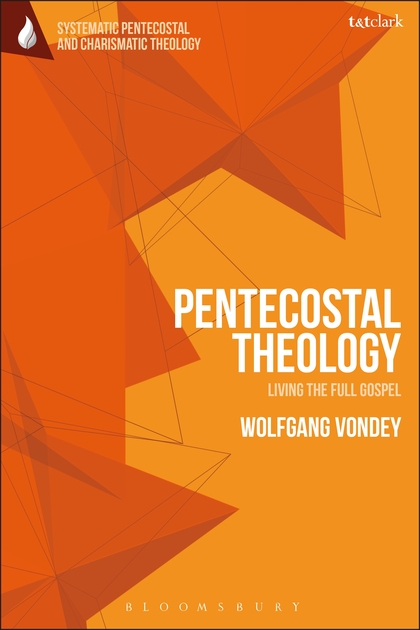Wolfgang Vondey: Pentecostal Theology
 Wolfgang Vondey, Pentecostal Theology: Living the Full Gospel (London: Bloomsbury T&T Clark, 2017).
Wolfgang Vondey, Pentecostal Theology: Living the Full Gospel (London: Bloomsbury T&T Clark, 2017).
Over the last decade Wolfgang Vondey has ascended the ranks of Pentecostal theologians, writing several important monographs, and his book Pentecostal Theology only enhances his stellar reputation. In short, Vondey principally argues that “Pentecost is the core theological symbol of Pentecostal theology, and its theological narrative is the full gospel” (1). Pentecost is a historical event, but it is also much more. Vondey hopes to demonstrate that Pentecost can also function as the foci of a theological system. Pentecost symbolizes a direct encounter with God through the Holy Spirit and manifests in various signs that point to God’s redemptive activity. Ultimately, a theology of Pentecost is an ecumenical vision. It can reach beyond Pentecostalism to make a valuable contribution to the broader theological horizon.
In the opening chapter, Vondey argues that doctrine is not the end for Pentecostal theology; rather, its primary goal is to encounter God. Thus play, inasmuch as it is an encounter with God, is an alternative way to frame worship. Vondey writes, “Play is therefore a way of engaging the world not exclusively through doctrine but also materially, physically, spiritually, aesthetically, morally, and socially. Theology as play has the character of spontaneity, enthusiasm, improvisation, and the free engagement of others in an unbounded movement of God’s Spirit” (13). Through play, Pentecostals become participants in the narrative of Pentecost and the anticipation of encountering God in this manner fuels Pentecostal experience.
The primary goal of Pentecostal theology is encounter with God.
In part two, Vondey applies a Pentecostal understanding of the full gospel to creation, humanity, society, church, and God by committing a chapter to each of these topics. He argues that “the full gospel can function both descriptively and constructively for developing a systematic Pentecostal theology” (156). By structuring his text in this manner, Vondey implies that Pentecost begins and ends with the worship of God. In this sense, Pentecostalism is a liturgical movement. Furthermore, Vondey shows that Pentecostal theology invites all to the altar, even as the altar is located everywhere.


